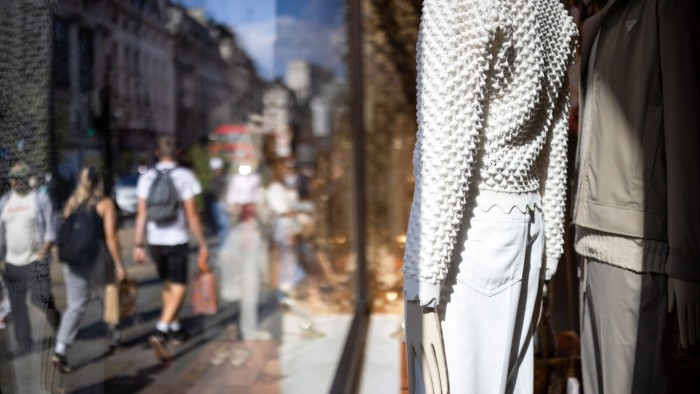Unlock the Editor’s Digest for free
Roula Khalaf, Editor of the FT, selects her favourite stories in this weekly newsletter.
British retail sales fell much more than expected in October as consumers purchased fewer clothes and food ahead of the Budget.
The quantity of goods bought in Great Britain fell 0.7 per cent between September and October, following a downward revised growth of 0.1 per cent the previous month, the Office for National Statistics said on Friday.
This was the largest monthly contraction since June and was bigger than the 0.3 per cent fall forecast by economists polled by Reuters.
ONS senior statistician Hannah Finselbach said: “The fall was driven by a notably poor month for clothing stores, but retailers across the board reported consumers held back on spending ahead of the Budget.”
Consumer confidence dipped sharply in September and October ahead of the chancellor’s Budget on October 30. However, in November it rebounded, rising 3 points to minus 18, according to data released on Friday by research company GfK.
The large fall in retail sales suggested that households’ concerns over tax rises in the Budget “contributed to weaker retail spending at the start of Q4,” said Ashley Webb, economist at the consultancy Capital Economics.
However, he added that “a solid rise in real earnings in Q4” would support sales volumes in the run-up to the festive period. Webb noted that the school half-term unusually falling outside of the October survey period may have contributed to the drop.
Kris Hamer, director of insight at the British Retail Consortium, a business association, called on the government to reconsider tax changes for retailers as they faced more than £7bn of additional costs in 2025.
This follows a rise in employers’ national insurance contributions, the minimum wage, and the introduction of new packaging taxes which come into effect next year.
Retail sales are an important indicator of consumer spending and economic growth. Last year, retail sales fell sharply over the festive period amid elevated prices and borrowing costs, as the economy tipped into a technical recession.
Rob Wood, economist at the consultancy Pantheon Macroeconomics, said the rise in consumer confidence in November suggested an “uptrend in retail sales volumes”.
However, Samantha Phillips, partner at the management consultancy McKinsey & Company, said that for many retailers it was a “disappointing start to the golden quarter”, with focus shifting to “how to build momentum” in the run-up to the festive period.
Sales rose 0.8 per cent in the three months to October, compared with the previous quarter, continuing their upward trend.
Compared with October 2023 volumes were up 2.4 per cent, a smaller rise than expected. Sales remained 1.5 per cent below pre Covid-19 pandemic levels, even if consumers spent nearly 20 per cent more on average, reflecting the impact of elevated prices.
Read the full article here

